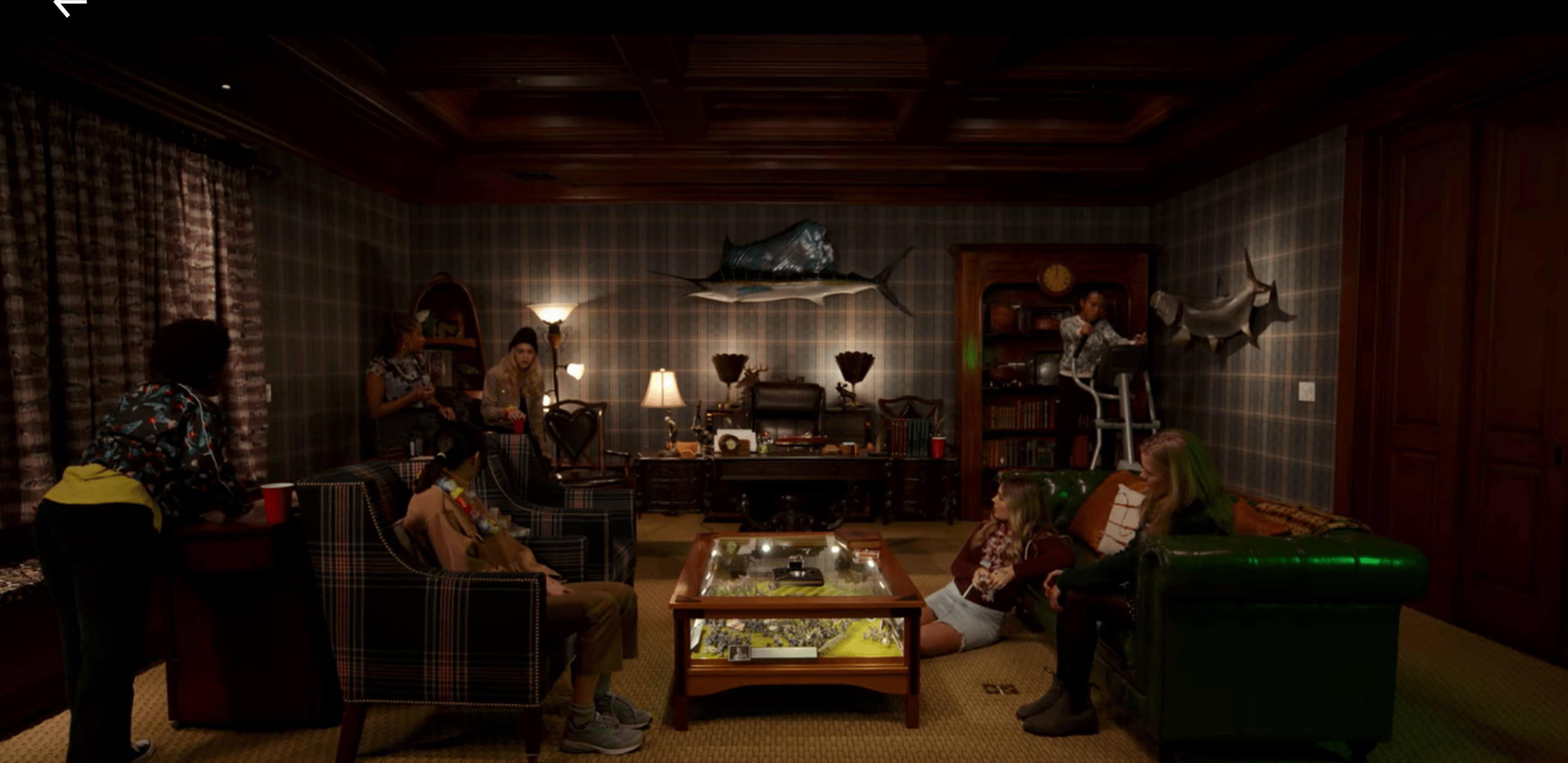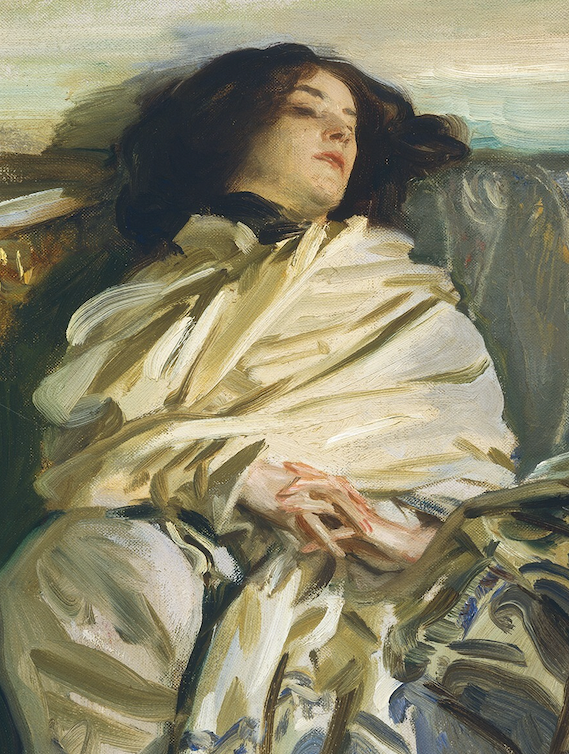Please note: The opening minute or so is blurry with fast and bumpy camera movements.
You know, watching Moxie was both thrilling and disappointing. Thrilling because it’s about a group of teenage girls protesting the casual misogyny and sexual assault teenage boys perpetrate at their school without any repercussions. Disappointing because teenage boys getting away with casual misogyny and sexual assault is still the status quo. (It’s fucking 2021. Evolve already.) Thrilling that it shows a diverse group of girls fighting the power together. Disappointing that it is mostly focused on a cis white girl, and that the words coming out of the mouths of the Black, brown, trans, and disabled girls were written by cis white women. Yes, I know, I know, I’m the one who is always saying that one series or movie can’t be all things to all people, which is totally true. But, while I enjoyed watching Moxie a lot, I’m also not going to pretend I didn’t want more and better from it.
As she starts her junior year of high school in Rockport, Oregon, Vivian (Hadley Robinson) is most concerned with finding something she cares about for her college essay. (Isn’t your junior year early for college essay writing?) She’s also worried about keeping her head down enough to avoid being noticed by boys like Mitchell Wilson (Patrick Schwarzenegger), who is captain of the mediocre-at-best football team and a high-ranking member of Smug American Pricks (SAP), an organization I just made up but we also all know has millions of members.

When her mom (Amy Poehler, who also directed the movie) points out that Mitchell is an asshole (Go Vivian’s mom!), Vivian demurs, saying that he’s just annoying and an idiot, but essentially harmless. We all know that Vivian is super duper wrong about this. And let me say that watching Mitchell is extremely difficult. He embodies every over-privileged, under-consequenced white boy that you’ve ever encountered. He contains every guy who has ever talked down to you, mindlessly assaulted you for sport, or hypnotized authority figures into taking his side instead of yours. My ears bled each and every time he condescendingly called their English teacher (Ike Barinholtz) by his first name. When the school principal avoids seeing his acts of cruelty, I had to resist the urge to shake my laptop in frustration. And just generally, I found it hard to watch his scenes without letting out primal screams of frustration. So, I guess kudos to Patrick Schwarzenegger for that? Unless he’s like that in real life, in which case he can fuck right off.

Anyway, as I said, in the beginning, Vivian does not have any such issues with Mitchell. In fact, she expects that this year, like all the years that came before, will consist of staying in the back of the class and on the sidelines with her best friend Claudia (Lauren Tsai) so they can slide through the rest of high school with as little friction as possible and go to Berkeley together. (You would never know from watching movies and TV shows that the United States has over 4,000 colleges and universities because characters only seem to ever apply to Berkeley, Harvard, Yale, or—but only if their character is lower-income—some random state school.)

Then two things change. First, Seth Acosta (Nico Hiraga) stayed nice and got hot, which makes Vivian feel all kinds of new tingly feelings. Second, a new girl named Lucy Hernández (Alycia Pascual-Peña) shows up in Vivian’s English class and she has no patience for Mitchell’s patronizing comments or his intimidation tactics. After he verbally attacks her for suggesting they read something other than The Great Gatsby, she goes straight to the principal (Marcia Gay Harden), who is every apathetic adult you ever encountered as a teenager rolled into one human ball of uselessness. She suggests Lucy get a hobby. Get a hobby!?! So sorry about the guy who shows definite signs of being a serial assaulter, maybe you’d like to join the marching band? The only reason Lucy should take that advice is so that the next time he comes for her, she can stick her piccolo straight up his…You know what? I’m getting distracted. It’s honestly a little too realistic for me and I nearly primal screamed again.


When Vivian tries to advise Lucy to ignore Mitchell and just keep her head down, Lucy pretty much rocks Vivian’s entire existence by pointing out that maybe instead Mitchell should stop being a dick and that “annoying can be more than just annoying…it can be code for worse stuff.” Lucy is amazing. Also, please give Alycia Pascual-Peña more roles. And, when Vivian tells her to keep her head down so he’ll eventually bother someone else, Lucy shuts her down saying, “Thanks for the advice, but I’m gonna keep my head up, high.” Okay, so I guess three things change, because after that conversation Vivian goes home and asks her mom about the song with the lyrics about keeping your head up, which leads to her listening to Bikini Kill, which leads to her going through her mom’s old stuff from when she was mostly concerned with “smashing the patriarchy,” which leads to the scales beginning to fall from Vivian’s eyes.
It’s at the pep rally the next day that she has her full feminist awakening. The much-anticipated annual list ranking girls on things like “Best Ass,” “Most Bangable,” and “Best Rack” pings onto everyone’s phone, but instead of wanting to chat with Claudia about whether their predictions were right, Vivian feels nothing but disgust. (Also, the looks on the girls’ faces as they see their names on the list is just distressing.)
Vivian goes home and channels her newfound rage into creating a zine that she leaves anonymously in one of the girls’ bathrooms. The zine ignites the simmering discontent among many of the girls and some of the boys (like Seth Acosta, for example, much to Vivian’s delight) into a blaze of frustration and righteous anger, which is further fueled by Lucy’s creation of the hashtag “Moxie Girls Fight Back.” Suddenly girls are showing solidarity by drawing hearts and stars on their hands, fighting back against the sexist dress code, demanding more recognition for the kick-ass girl’s soccer team, and rejecting the rankings. Basically they are shaking shit up and trying to knock Mediocre Mitchell off his perch on Mount Patriarchy.

So look, I’m all for this. All. For. It. (I’m also all for Vivian dating Seth Acosta, who is the epitome of an ally boyfriend.) I mean, I hope that all of this is redundant for teenage girls and they’re like, “Whatever, this movie is for the olds because we already know how important intersectionality is and that we shouldn’t be objectified or touched without consent or dead named or misogynistically ranked or be held responsible for how boys react to our clothing,” but I’m guessing that’s not the case. And I love the way this movie is all about all kinds of girls from all kinds of cliques coming together to try to tear down the patriarchy—or at least putting a dent in its foundation by ultimately (hopefully) taking down Mitchell and forcing the principal to act.

But (and you knew that but was coming) there are some real problems here as well. First, it’s never really acknowledged how Vivian is complicit in maintaining the status quo by trying to fly under the radar. It’s never acknowledged that she can do that in large part because of her whiteness. Right? She’s seen as obedient and non-threatening. Lucy’s mere presence, on the other hand, is a threat to Mitchell and the boys who follow him. She and the other Black, brown, and trans girls don’t have the same choice as Vivian in the first place. Then, Vivian keeps her authorship of the zine a secret. That’s not a problem at first, but when Mitchell, thinking she’s the one behind it, verbally and publicly attacks Lucy, Vivian still doesn’t say anything. She stands by silently and watches. Is it realistic? Maybe, but I still feel like it should have been addressed at some point or in some way as not being okay. Third, Vivian doesn’t fully acknowledge how many of her ideas came from her Black and brown peers, like Lucy, who is Afro-Latina, which is, to put it mildly, pretty uncool and indicative of the larger societal problem of appropriation. Fourth, as I said before, the story is fairly narrowly focused on Vivian, leaving the Black, brown, trans, and disabled characters on the sidelines.

The exception to this is Claudia, who is still on the sidelines, but does open Vivian’s eyes to how, as the child of an immigrant, the expectations and pressures placed on her are wildly different than on Vivian. It’s a start, but it’s not really enough. And there is one thing that I just found confusing. Meg (Emily Hopper), who uses a wheelchair, appears for the first time right after Claudia says that Emma (Josephine Langford) will definitely get Most Bangable again this year because it’s not like she was disfigured in a horrible car accident. Is that supposed to be a joke? That’s not a rhetorical question. I really don’t know if they’re making a joke. Or what the juxtaposition is supposed to say? I read in a magazine that Meg is disabled “but doesn’t let that define her,” which, hoo boy howdy, NOPE. That’s not the compliment you think it is. Look, unless a disabled person specifically tells you that’s how they want to be spoken about, don’t pull out that ableist shit because disability is not a dirty word. Inaccessibility on the other hand… But more to the point, I don’t know how the author in that magazine knows what defines Meg because she shows up about four times, mainly to say sarcastic things about being in the back row of the marching band or people blocking the wheelchair ramp, but she’s otherwise pretty voiceless in the revolution.

Well, after all that criticism, let me remind you that I did actually enjoy this movie. It’s so great to watch the depictions of growing friendships between teenage girls, which are really the heart of the story. Plus, the romance between Vivian and Seth is the kind of sweet union you want everyone to have as an awkward teen. And we are left with hope at the end that the apathetic adults will be pushed into action and that Mitchell will get his comeuppance. I just want more, you know? More representation both behind and in front of the camera, more overt acknowledgements of privilege, more time and space for voices other than Vivian’s, and, quite frankly, more consequences for Mitchell because I wanted to see all the hot air sucked out of that pompous prick. Anyway, maybe watch this movie, and, as always, fuck the patriarchy and all its patriarchal fuckwittery.
Overall Rating on the Chronically Streaming Pain Scale:

but overall the good outweighs the bad.




